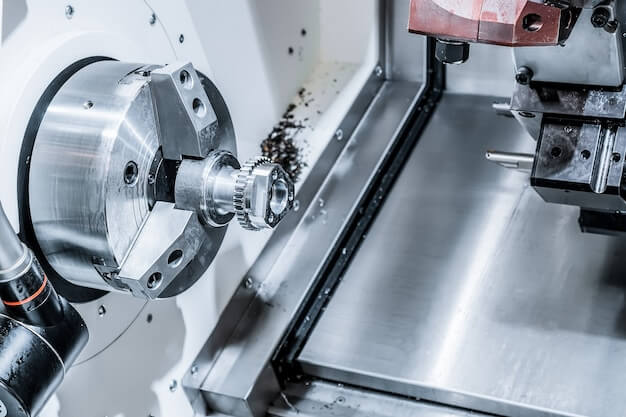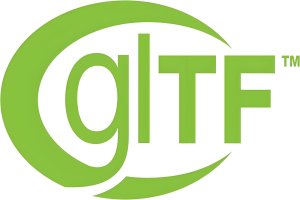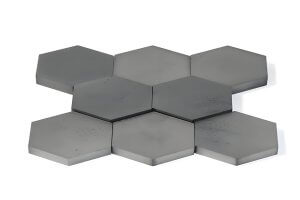Introduction to Plastic CNC Machining Services
Plastic Computer Numerical Control (CNC) machining services refer to the process where plastics are cut and shaped using a computer-guided, highly precise machinery system. This technique allows intricate and complex components, such as those made of Polyether Ether Ketone (PEEK), an ultra-high-performance engineering plastic, to be accurately produced with excellent dimensional stability. Plastic CNC machining services offer infinite design possibilities since they can create parts that traditional manufacturing techniques cannot manage.
- CNC Machines: These are high-precision tools guided by computer programming data for shaping and cutting plastic materials into specific forms and sizes. They provide unmatched repeatability and tight tolerance limits.
- PEEK Material: PEEK offers exceptional chemical resistance, superior mechanical strength, and tremendous thermal durability, making it a preferred choice for producing intricate structures in industries like electronics, aerospace, or medical devices.
Understanding Plastic CNC Machining with PEEK
Plastic Computer Numerical Control (CNC) machining is a precise subtractive manufacturing technology that uses computer-controlled machine tools to create custom-designed plastic parts and components. In this context, Polyether Ether Ketone (PEEK), an advanced thermoplastic polymer, plays a significant role due to its unique properties.
- High mechanical strength: PEEK withstands extreme stresses, ensuring the durability of the final product.
- Excellent thermal stability: It tolerates high temperatures without compromising structural integrity.
- Superb chemical resistance: Due to its inert nature, PEEK can resist various aggressive chemicals.
The above traits make PEEK an ideal material for complex components in demanding applications such as aerospace, medical devices, and automotive industries where precision, reliability, and performance are paramount. An example would be the autoclavable surgical instruments made via CNC machining from PEEK material, enabling repeated sterilization without degrading their quality or functionality. This highlights the significance of using PEEK in plastic CNC machining services for creating complex components.
Role of Plastic CNC Machining in Creating Complex Components
The utilisation of plastic Computer Numerical Control (CNC) machining in manufacturing complex components offers several advantages, primarily attributed to its precision and versatility. One of the basic tenets of CNC is its ability to perform complex cuts that are difficult to achieve manually. By leveraging technology, intricate and precise components can be produced reliably using a wide variety of materials including Polyether ether ketone (PEEK), fulfilling a diversity of specific industrial requirements.
Examples showcasing the use cases of such components include medical implants where high-dimensional accuracy is essential for patient safety, and aerospace applications where light-weight yet robust parts are needed. Furthermore, plastic CNC machining also caters well to communications technology, creating delicate internal mechanisms in computers, phones, and further constructs logistic equipment components which require supreme resilience under heavy-duty application. These varied use cases underscore the flexibility and practicality of employing plastic CNC machining when fabricating complex, bespoke designs.
PEEK, or Polyetheretherketone, is a high-performance thermoplastic known for its exceptional strength and chemical resistance. It is widely used in medical CNC machining for various applications, including temporary contact products, ventilator tubes, surgical clamps, X-ray machines, and prosthetics.
Benefits of Using PEEK in CNC Machining: Durability, Strength, and Resistance
The use of Polyether ether ketone (PEEK) in Plastic CNC machining offers an array of benefits primarily due to the material’s unique characteristics. Firstly, PEEK is renowned for its superior durability, which ensures longevity even in more complex components that undergo a high level of wear and tear. This property lowers replacement costs for parts made from this plastic.
- Durability: Able to withstand frequent usage without decline in quality or function.
- Strength: Can sustain heavy loads and resist damage under pressure, enhancing reliability.
- Resistance: Resistant to chemicals, heat, and friction, ensuring consistent performance in challenging environments.
In scenarios where these benefits are vital, like aerospace, automotive, and medical industries, PEEK proves indispensable. For instance, automotive parts such as gears benefit significantly from the strong and durable nature of PEEK — they can handle immense pressure while still maintaining their structural integrity. The result is undoubtedly superior products that inspire confidence with their peak performance and robustness.
Challenges and Solutions for PEEK Machining in Complex Components
Plastic CNC machining services with PEEK are widely recognized for their high performance ability to manufacture complex components. However, there can be several challenges associated with using PEEK. For instance, due to its inherent strength and toughness, PEEK can prove difficult to machine resulting in rapid wear of cutting tools. One possible solution is the use of specialized tooling designed specifically for machining PEEK. Additionally, cooling systems can be implemented to curb heat build-up which otherwise adversely affects the machining process.
In a practical scenario, if you’re trying to produce a small component with intricate details using PEEK, material removal might pose issues leading to poor surface finishes. This can be mitigated by slowing down the feed rate or employing small incremental cuts. Effective communication with your machining service provider can also help circumvent these difficulties and achieve desired results.
Conclusion
In conclusion, the use of PEEK in CNC machining has proven to be an invaluable asset across multiple industries for the production of complex components. The discussed points clearly illustrate the unique capabilities offered by this material and technique combination. Its high durability, thermal stability, resistance to chemicals, and biocompatibility make it ideal for various applications including medical and manufacturing sectors.
- The medical industry benefits greatly from its biocompatibility, using PEEK-made instruments, implants, and other devices that demand precision and safety standards.
- In manufacturing, PEEK’s ability to withstand harsh environments allows the creation of long-lasting equipment parts used under rigorous conditions.
The power of plastic CNC machining with PEEK is immense and continues to unlock incredible potential within essential industries around the globe.
Other Articles You Might Enjoy
- Innovative CNC Machining for Advanced Spacecraft Components
Introduction: CNC Machining and its role in Spacecraft Components Computer Numerical Control (CNC) machining has, over the years, proven to be one of the most integral pillars within manufacturing industries.…
- Ceramic Tooling in CNC Machining: Breaking the Myths About Durability and Performance?
CNC Machining and Ceramic Tooling: Busting the Myths Computer Numerical Control (CNC) machining is an advanced method of manufacturing where pre-programmed software controls the movement of factory machinery, giving intricate…
- CNC Machining Parts Factory: Specializing in High-Quality Steel
Introduction to CNC Machining and its Significance CNC (Computer Numerical Control) machining is a critical component in modern manufacturing, responsible for executing complex cuts and designs with absolute precision. This…






